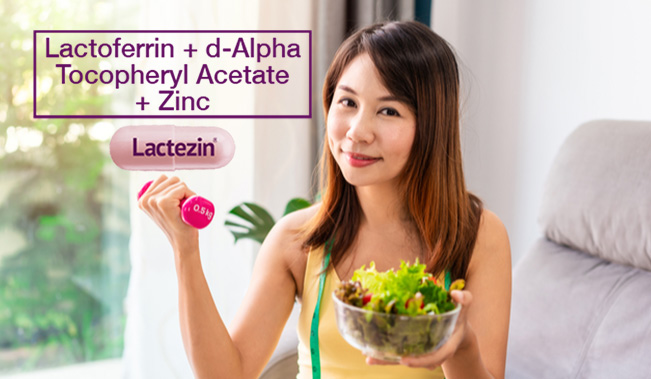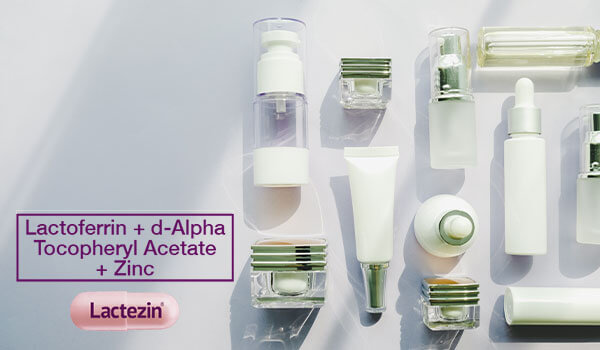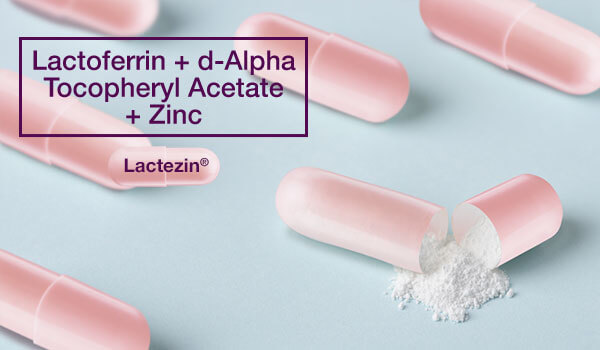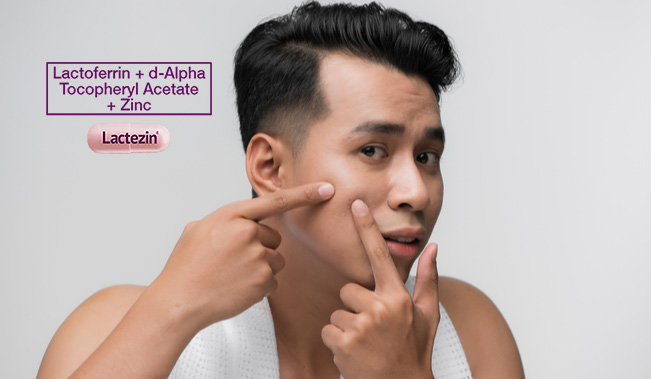8 Things to Try to Stop Pimple-Causing Bacteria

It can be exhausting to repeatedly treat pimples, especially on days when it seems like you have just finished targeting one and a new zit pops up. While it can be tempting to wave the white flag, don’t surrender just yet!
Pimples can be caused by factors like bacteria, dead skin cells and dirt trapped in your skin’s pores, increased sebum or oil production, and inflammation within the body. Fortunately, there are many ways you can combat these potential causes of pimples.
Take note of these tips on how to stop pimples from coming on your face permanently. With just a couple of changes to your existing routine, you can say goodbye to pimples and hello to clearer and glowing skin!
8 Useful Strategies to Combat Pimple-Causing Bacteria and Dirt
If you have ever wondered how to stop pimples from coming on your face, remember these tips:
- Eat the right food: Some nutrients in food can help boost skin health and counteract inflammation that may cause pimples. Good choices for an anti-acne diet include omega-3 rich food like grass-fed beef, salmon, pastured eggs, almonds, walnuts, and flaxseeds. Don’t forget to add fruits and vegetables that contain vitamins A and E, and zinc too such as spinach, carrots, kale, and broccoli.
-
Cut back on sugars and carbs: It’s because these particular food items tend to rank high in the glycemic index (GI). High quantities of sugar found in high-GI food can raise your blood sugar levels. As a result, your body undergoes chronic inflammation, resulting in production of more oil that can block pores and lead to breakouts.
If you want to prevent breakouts, significantly reduce or avoid intake of cookies, cakes, pies, white bread, breakfast cereals, pasta, or even sweet treats like chocolate or candy.
- Steer clear of dairy products: A meta-analysis published in 2018 revealed that consumption of dairy products like milk, yogurt, and cheese may lead to a higher risk for developing acne. A protein called IGF-1 found in cow’s milk may cause breakouts once your body digests it.
-
Exercise when you can: Exercise helps promote increased blood flow that can move free radicals and other similar harmful substances away from the skin where it will not cause breakouts.
Just be careful since oil, dirt, and bacteria can build up on items you may be using such as equipment and towels, and accumulate in your face and other body parts too. Try to wash and clean your hands between workouts especially when you use weights, mats, and/or machines. Once you’re done breaking a sweat, wash your face and clean your body thoroughly.
-
Clean your face well with the right products: Look for products labeled “non-comedogenic” or “oil-free,” since these are less likely to contain ingredients that clog pores and cause pimples.
If you’re unsure about the appropriate products to use for your skin, especially if you have other health issues, consult a dermatologist. They can determine ingredients that can work (or not) on your skin and recommend products that can suit you.
-
Avoid over scrubbing or over exfoliating your face: While cleaning or exfoliating may help eliminate excess pimple-causing bacteria or dirt, your skin can only take so much. Too much scrubbing or exfoliating can cause skin irritation and strip some natural oils found in your skin barrier.
Eventually, your skin produces more oil to compensate for the loss, and said products can clog pores and trigger breakouts.
- Resist the urge to pop zits: Popping pimples can lead to more scarring and inflammation, and potentially even an infection. Moreover, you may be touching parts of your face with dirty hands, essentially transferring pimple-causing bacteria from one part of the skin to another.
- Destress: When you’re stressed, your body releases a hormone called cortisol that can result in increased sebum production, a known cause of breakouts. Find the time to do hobbies or activities you love that can help you relax and fight stress.
How to Stop Acne From Coming on Your Face
If you still need an extra boost when it comes to targeting pimples, try Lactoferrin + d-Alpha Tocopheryl Acetate + Zinc (Lactezin). With its clinically-tested and FDA-approved formula, Lactoferrin + d-Alpha Tocopheryl Acetate + Zinc (Lactezin) can help treat and prevent pimples and other acne indicators with its pimple-fighting ingredients:
- Lactoferrin: An iron-binding protein, lactoferrin exhibits antibacterial and anti-inflammatory properties, helps fight pimple-causing bacteria, assists in reducing sebum production and inflammation, and aids in improving immune function and repairing damaged skin cells.
- Vitamin E: This antioxidant may help maintain good skin cell health, combat damage caused by free radicals and UV rays, and assist in retaining skin’s natural moisture while preventing dryness.
- Zinc: It may help provide immune-boosting and anti-inflammatory abilities, regulate oil production to improve skin’s overall appearance and aid in healing your skin.
Lactoferrin + d-Alpha Tocopheryl Acetate + Zinc (Lactezin) should be taken twice daily for at least two weeks alongside proper diet and exercise.
If symptoms persist, consult your doctor.
Lactoferrin + d-Alpha Tocopheryl Acetate + Zinc (Lactezin) is available in leading drugstores, supermarkets, and online on Shopee and Lazada.
SOURCES:
https://www.mayoclinic.org/diseases-conditions/acne/symptoms-causes/syc-20368047
https://www.webmd.com/skin-problems-and-treatments/acne/10-tips-for-preventing-pimples
https://www.webmd.com/skin-problems-and-treatments/acne/features/exercise
https://www.medicalnewstoday.com/articles/321411
https://www.medicalnewstoday.com/articles/pimple-popping
https://www.medicalnewstoday.com/articles/326386
https://www.medicalnewstoday.com/articles/322639
https://www.aad.org/public/diseases/acne/diy/wont-clear
https://www.aad.org/public/diseases/acne/causes/workouts
https://www.healthline.com/health/skin/acne
https://www.healthline.com/health/dairy-and-acne
https://www.everydayhealth.com/acne-pictures/acne-diet-dos-and-donts.aspx


